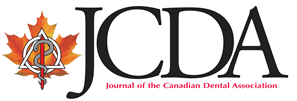Missing Links in Oral Health Care for Frail Elderly People
FULL TEXT
• Michael I. MacEntee, LDS(I), Cert Prosth, FRCD(C), PhD •
A b s t r a c t
A national interdisciplinary strategy is needed to address the comprehensive oral health care needs of frail elderly people residing in long-term care facilities. Reasonable care within the social and personal context of frailty encompasses active prevention of disease augmented by necessary restorative treatment, provided with sensitivity to a person's propensity to seek care. Typically, dental emergencies are managed quite well in longterm care facilities, either by treating the resident on site or by transporting the resident to a local clinician. In addition, facility administrators are usually well aware of their legal responsibilities to provide diagnostic services to residents before disease or dysfunction causes irreparable damage. Consequently, many facilities have arrangements with dental hygienists, dentists or denturists for periodic clinical assessment of all residents, or they seek help at the first sign of trouble. On the other hand, effective, widely accepted strategies for assisting frail residents with daily oral hygiene are lacking, and in many regions across the country it is overly difficult for frail residents with severe oral impairment or dysfunction to receive appropriate care and treatment. A cooperative effort from many disciplines will be needed to provide these missing links in Canadian health services and to realize the principle of providing maximum benefit to the least advantaged in society.
MeSH Key Words: dental care; health services accessibility; quality of life; social justice
Reply to this article | View replies [0]
|

